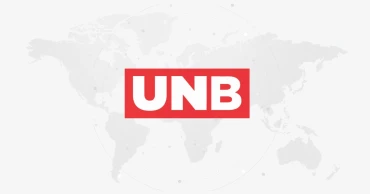EU Embassy
EU allocates €300,000 in humanitarian aid to gutted Cox’s Bazar Rohingya camps
In response to the recent fire in one of the refugee camps, hosting nearly 1 million Rohingya refugees in Cox’s Bazar, the European Union has released €300 000 to assist the affected population.
The incident left over 5 000 people without shelter.
The funding will serve to provide immediate emergency assistance to address the most urgent needs, notably in terms of shelter, water and site development, said the EU Embassy in Dhaka on Tuesday.
It will be implemented by the UN Refugee Agency (UNHCR) and complement efforts of other humanitarian partners.
Read: Rohingya youth murdered over camp dominance in Cox’s Bazar
In the early hours of 7 January, a large fire broke out in one of the most congested camps, Camp 5, where it quickly spread. Close to 950 shelters burned down or were partially destroyed.
The fire also damaged communal facilities, including one health centre, 15 learning centres, as well as numerous latrines and washrooms.
Despite the extensive damage, no casualties have been reported so far, thanks to the rapid intervention of the fire brigade with the essential help of Rohingya community volunteers.
Since fires are frequent in the congested camps, EU-funded disaster preparedness programmes have helped humanitarian partners strengthen camp structures and better prepare for such risks.
Read: A fire in a Rohingya refugee camp in Bangladesh guts more than 1,000 shelters
This new funding comes in addition to the over €38 million provided by the EU last year in humanitarian aid to Bangladesh, notably in response to the Rohingya refugee crisis, but also to reduce the impact of natural hazards.
Last March, when another devastating fire caused substantial damage in Cox’s Bazar camps, the EU released €1 million to assist the affected refugees.
2 years ago
EU provides €200,000 to support people affected by flash floods in Bangladesh
The European Union (EU) is allocating €200,000 (over Tk 19 million) to provide emergency humanitarian assistance to families affected by the flash floods in north eastern Bangladesh.
The aid will benefit over 20,000 people in districts affected by the floods, said the EU Embassy in Dhaka on Tuesday.
Also read: Bangladesh wants fair prices for its products in European market
The EU funding supports the Bangladesh Red Cross Society (BDRCS) in delivering immediate assistance through the provision of drinking water, emergency sanitation, health services, hygiene parcels, and cash assistance in the Sylhet and Sunamganj districts.
The aid provides lifesaving support to those most in need, including those living in temporary shelters, the elderly, people with disabilities, children and women.
Floods devastated both farmland and cities and both farmers and city dwellers are affected.
The funding is part of the EU’s overall contribution to the Disaster Relief Emergency Fund (DREF) of the International Federation of Red Cross and Red Crescent Societies (IFRC).
Disaster preparedness, disaster risk reduction and resilience remain key priority areas for the EU in Bangladesh.
Due to its geographical location, the country is prone to seasonal flooding, landslides, and cyclones, said the EU.
This makes it one of the world’s most vulnerable countries to the effects of climate change.
Also read:EU leaders agree to ban 90% of Russian oil by year-end
The EU helps communities at risk from natural hazards, supporting early action in highly flood-prone and cyclone-prone areas.
The EU has been working in Bangladesh since 2002, both in disaster preparedness and emergency response activities with a total funding of more than €361 million.
3 years ago
EU supports early action in Bangladesh anticipating severe floods
The European Union is providing EUR 100,000 for early anticipatory action to reduce the negative impact on the most affected communities due to floods in Bangladesh.
The aid is coming in response to severe flooding that submerged many parts of Bangladesh in late June.
The aid will benefit over 3,300 families in some of the hardest hit areas in Kurigram, Gaibandha and Jamalpur districts, said the EU Embassy here on Tuesday.
The EU funding supports the Bangladesh Red Crescent Society in using reliable scientific forecast information and risk analysis to foresee the potential impact of the floods and to conduct early actions aimed at reducing human suffering, losses and damage.
The aid includes evacuating the most vulnerable communities to safe shelters with their assets and livestock, providing unconditional cash grants, as well as providing first aid treatment.
The funding provided is part of the EU's overall contribution to the Forecast-based Action (FbA) by the Disaster Relief Emergency Fund (DREF) of the International Federation of Red Cross and Red Crescent Societies (IFRC).
Heavy monsoon rainfall triggered extensive floods in northern and eastern areas of Bangladesh, causing extensive damage to homes and farmlands across the delta nation’s vast northern regions.
Thousands of people have found themselves marooned or displaced, said the EU.
The flooding could affect up to a million households over the first days of July, it said.
5 years ago


.jpg)
